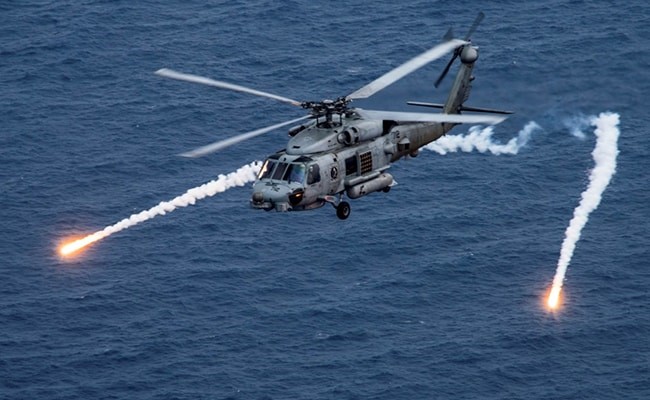| Translate This News In |
|---|
Taiwan announced on Thursday that it has cancelled a deal to purchase powerful modern anti-submarine warfare helicopters from the US, citing the cost as a reason.
Taiwan had previously stated its intention to purchase 12 MH-60R anti-submarine helicopters from Lockheed Martin Corp’s Sikorsky business, but Taiwanese media reported that the transaction had been rejected by the US because it did not meet the island’s needs.
When asked about recent modifications in Taiwan’s purchases of new American weaponry in parliament, Defense Minister Chiu Kuo-cheng brought up the helicopter case first.
“The price is extremely expensive, well above our country’s capabilities,” he remarked.
M109A6 Medium Self-Propelled Howitzer artillery systems and mobile Stinger anti-aircraft missiles have also been delayed.
Stingers from Raytheon Technologies are in high demand in Ukraine, where they’ve been used to shoot down Russian planes, but US supplies have run out, and creating more of the anti-aircraft weaponry faces substantial challenges.
Chiu stated that they had already signed and paid for the Stingers, and that they would force the US to deliver them.
“We don’t consider arms sales to be a minor concern, and we have contingency plans in place,” he said, without going into further.
Taiwan claims that the US has given it alternatives to the M109A6, such as Lockheed Martin’s High Mobility Artillery Rocket System, or HIMARS, which are truck-based rocket launchers.
Chiu stated that they were still debating their options.
Taiwan, which China claims as its own territory, is undergoing a military modernization programme to increase its capabilities in the event of a Chinese assault, including the use of precision weaponry such as missiles.
President Tsai Ing-wen has promoted the concept of “asymmetric warfare,” which entails the development of high-tech, highly mobile weapons that are difficult to destroy and can deliver precise attacks.
Officials in the United States have been pressuring Taiwan to modernise its military so that it can become a “porcupine” that is difficult to attack by China.
China has stepped its military modernization and pressure on Taiwan in an effort to force the democratically run island to recognise Beijing’s leadership.


















